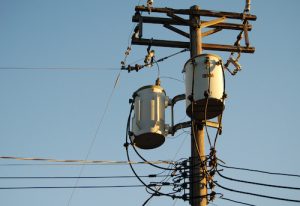
Will the Texas PUC to rewire CenterPoint’s electricity delivery rates?
Hey, Houston electricity customers!
Get out your wallets and stand ready to get trickled on!
Whoa! Not so fast, there!
Cheaper rates might be coming —but not right away.
Reasonable Texas Profits
CenterPoint Energy Houston Electric has been doing well. Really, really well. Since the Texas Public Utilities Commission (PUC) sets a limit on much profit CenterPoint can earn to a reasonable amount, this past fall, the PUC Staff executed a 2016 earnings review, similar to the earnings rate case that happened in 2014.
According to PUC records, in 2016 CenterPoint earned a 9.6% return of equity (ROE) — which PUC auditing staff thought to be high. After further review, Staff came to estimate that CenterPoint’s excess revenue came to $21.9 million for 2016 or about 0.90% higher than was determined reasonable.
For 2017, CenterPoint projects that it will earn an ROE in the range of 9.7% — which staff considered high at the time of the October 2017 report. One important item noted in the report was that CenterPoint had not had a full review of their transmission rates since 2011. The subsequent meeting to discuss this report left open what action to take next.
Trump Tax Plan Raises Texas Profits
What came next was the passage of Tax Cuts and Jobs Act which will increase the CenterPoint’s 2017 earnings even further. On January 4, CenterPoint investors were told that “earnings are expected to exceed the previously provided $1.25 to $1.33 guidance range.” Shares are currently trading at roughly $28.
With that news in mind, PUC Chairman DeAnn T. Walker proposed on January 23 that the Commission ask CenterPoint to file a rate case. That way, the commission can have that long-delayed chat with CenterPoint to set up new transmission and distribution rates in light of the new federal income tax laws which reduce corporate rates from 35% to 21%. The same rate-reduction holds true for other Texas TDSP companies, too.
Will CenterPoint Delivery Charges Fall?
In order for CenterPoint to comply with the PUC requirement of making a reasonable profit, it looks possible that the TDU will need to cuts its rates to its Houston electricity customers as well as others. By how much, of course, depends on several things, like recovery costs from Hurricane Harvey and other ongoing transmission projects. It’s essentially up to the PUC —which, if it votes to require a rate case filing wouldn’t actually see a filing from CenterPoint for up to 120 days. Stay tuned!
